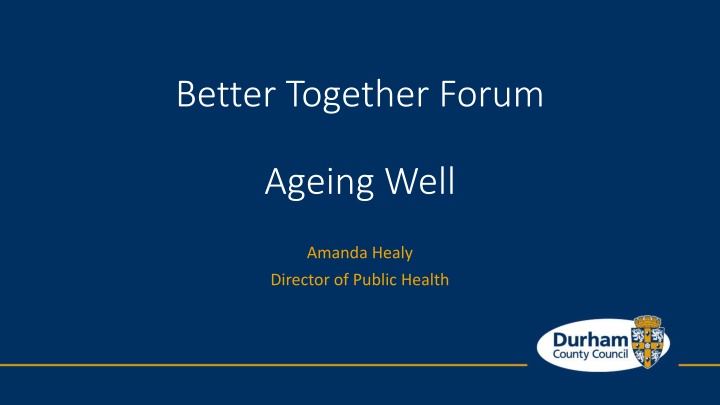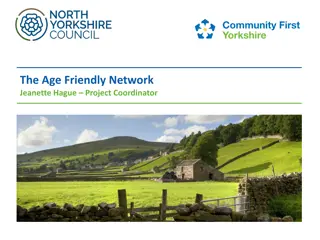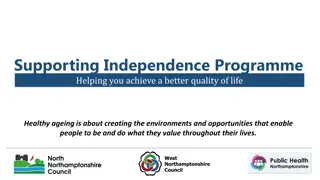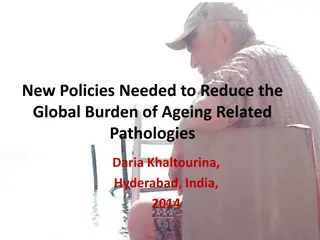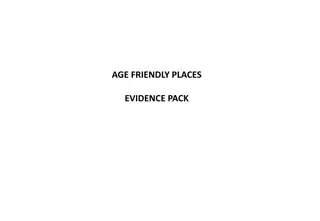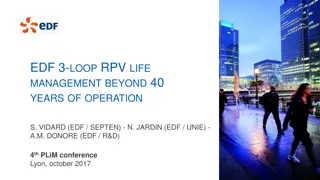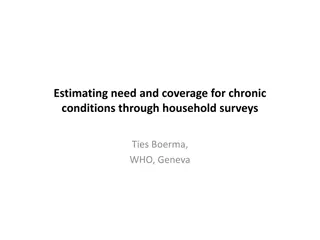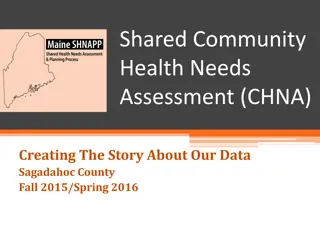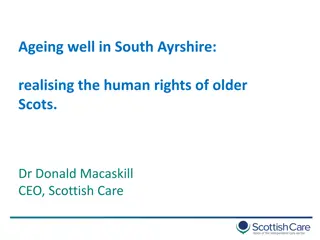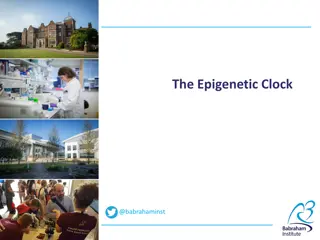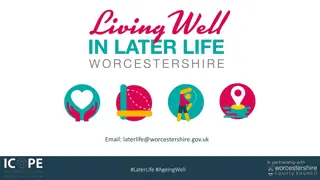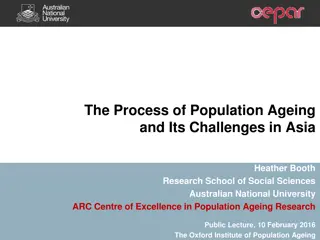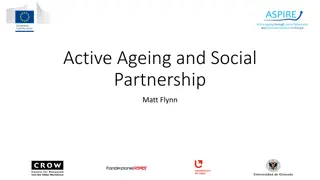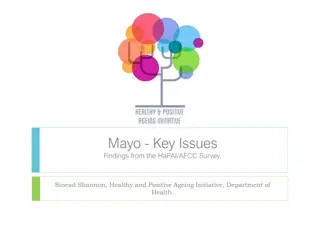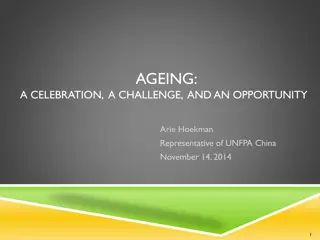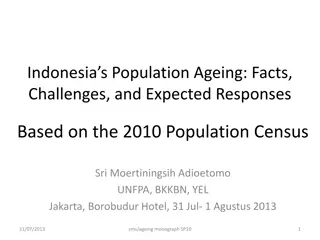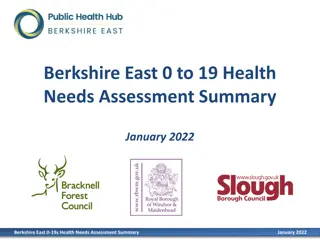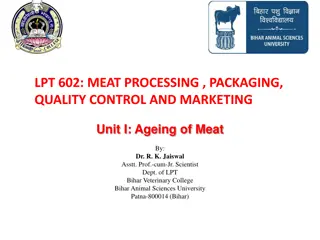Progress in Ageing Well Health Needs Assessment
Progress update on the Health Needs Assessment for older people in County Durham, focusing on key findings, recommendations, and actions taken to improve health outcomes and reduce inequalities in the ageing population. The assessment covered various priority areas using the WHO Age-Friendly Cities Framework, addressing social, behavioral, environmental, and economic determinants of health.
Download Presentation

Please find below an Image/Link to download the presentation.
The content on the website is provided AS IS for your information and personal use only. It may not be sold, licensed, or shared on other websites without obtaining consent from the author.If you encounter any issues during the download, it is possible that the publisher has removed the file from their server.
You are allowed to download the files provided on this website for personal or commercial use, subject to the condition that they are used lawfully. All files are the property of their respective owners.
The content on the website is provided AS IS for your information and personal use only. It may not be sold, licensed, or shared on other websites without obtaining consent from the author.
E N D
Presentation Transcript
Better Together Forum Ageing Well Amanda Healy Director of Public Health
Progress to date Ageing Well Health Needs Assessment completed summer 2022 (completed by Rebekka Shenfine, Speciality Registrar in Public Health). Aims of the HNA: To determine the health needs of older people aged 50 plus in County Durham and inform the development of a new ageing well action plan to reduce inequalities and improve health and wellbeing outcomes in this population Covered a wide range of priority areas using the World Health Organisation Age-Friendly Cities Framework working across wider determinants of health such as social, behavioural, environmental and economic determinants alongside the impact of the physical environment rather than clinical pathways/frailty This approach enable health promotion and prevention activity across the life course
Progress to date Key Findings of the HNA Information and Advice - availability of information and alternative information formats Transport - Accessibility of information and services especially those living in rural areas Respect and Social Isolation - importance of viewing ageing in a positive light, and the effects of Covid-19 pandemic. Social participation - role of co-production, intergenerational activity, volunteering and health literacy. Housing and neighbourhoods - availability of suitable local housing close to family members, specific support for older tenants Outdoor spaces and buildings -importance of making outdoor spaces and buildings age-friendly, combatting anti-social behaviour, climate change effects on older people Economic activity and civil engagement - effects of the rising costs of living and fuel poverty, age-friendly employment opportunities. Health and wellbeing - helping people with long-term conditions to live their lives in better health and the need for services (e.g. sexual health, stop smoking and domestic violence) to meet the needs of people aged over 50.
Progress to date The findings of the HNA led to a range of recommendations which have been shared with partners across the system. Work progressing to embed recommendations; Findings have been shared with partners across the system Recommendations have been embedded within the Ageing Well Partnership Plan Public health guidance in development on key areas identified within the HNA to consider age as a protected characteristic on any equality impact assessment / new area of work (Age UK ambassadors have provided feedback on this). This will be shared with partners when finalised Ageism campaign in development to encourage partners to challenge ageism in everyday conversation across the county due end of May 2024 Discussions taking place to progress towards Age Friendly Communities accreditation
Joint Local Health and Wellbeing Strategy Joint Local Health and Wellbeing Strategy Priorities Making Smoking History Enabling Healthy Weight for All Improving Mental Health, Resilience and Wellbeing Reducing Alcohol Harms Wider Determinants of Health Education and skills Planning Transport Economy Environment Poverty Housing Culture
Vision Vision County Durham Together is about working with communities, especially those most in need, making sure they are at the heart of decision making, building on their existing skills, knowledge, experience and resources to support everyone to thrive and to live happy, healthy and connected lives.
Voluntary and Community Sector Leadership Group Voluntary and Community Sector Leadership Group Creating a more sustainable voluntary and community sector in County Durham and act as aconduit for alignment of VCSE funding Maximise and align cross sector investment into the voluntary and community sector. Increase the knowledge and understanding within statutory bodies of the role and contribution of the VCSE sector at a local level. Adapt/explore and test new ways of working together to invest in the VCSE/different approaches to commissioning the VCSE sector. Make use of the sector s insights and strengths to better meet population needs as a system. Develop a VCSE investment framework or co-produced strategy for working with the VCSE sector and a delivery plan. Support civic commissioners to review existing contracting relationships and opportunities for diversifying service providers including VCSE organisations. Work towards a fundamental shift in culture, investment and process Identify opportunities that encourage collaboration and that support the co-design of solutions, building on local capacity and strengths. Gain support for, implement and oversee, Employer Supported Volunteering Schemes
Voluntary and Community Sector Leadership Group Voluntary and Community Sector Leadership Group Progress First steps to alignment of strategic funders of VCSE Broad agreement on vision for the future Mapping of existing grants to VCS organisations across partners (including from ICB, Durham University, DCC) Next steps Establishing Principles Continued development of partners dashboard Developing a Commissioning Guide for funders Our Support Offer for VCSE Organisations The Manchester Model developing the Durham Model Comms Branding Project Resource Challenges Demands from all partners on the VCSE and the way funding is distributed in silos Uncertainty in longevity of funding commitments Challenges in evaluation measures for VSCE funding recipients Understanding barriers to good evaluation of initiatives
